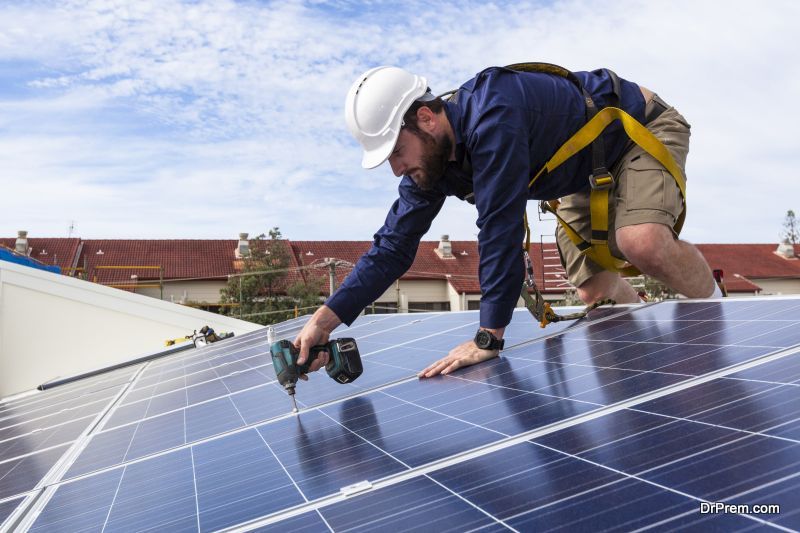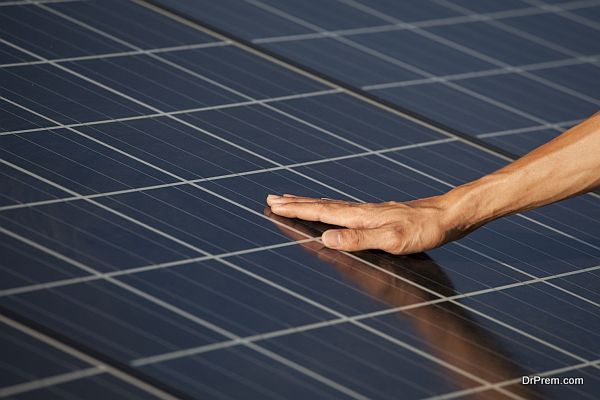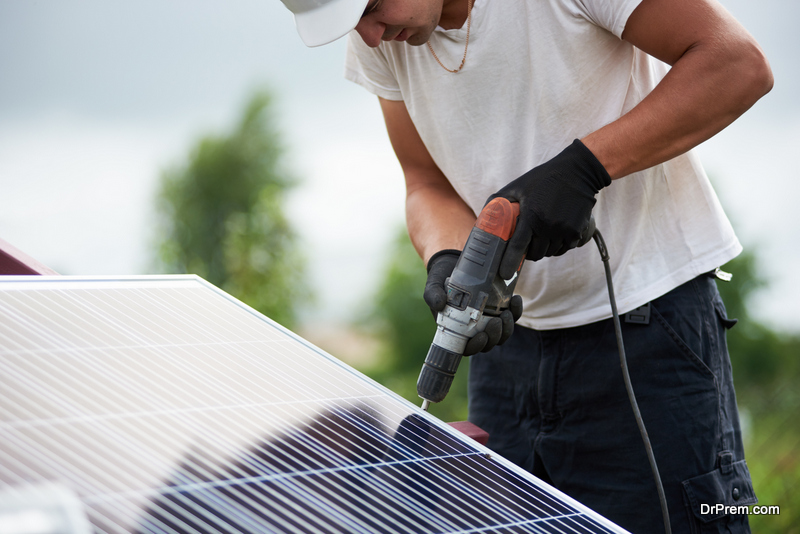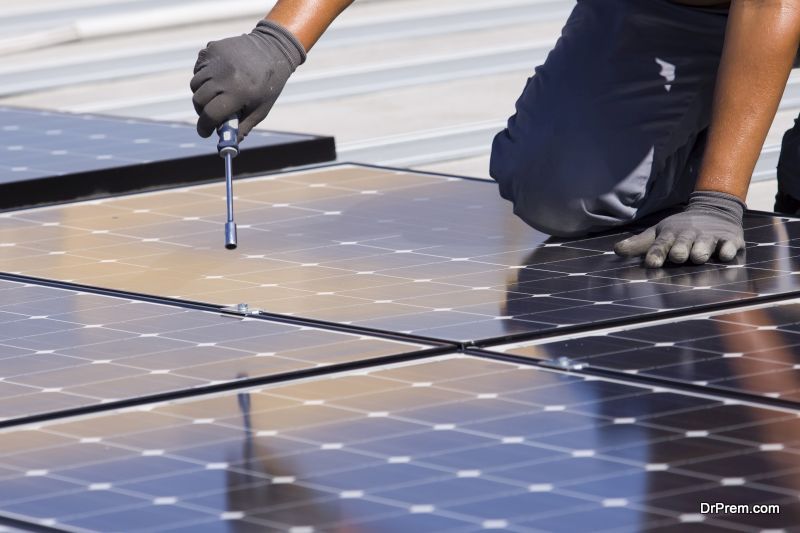Installing a solar home electrical system is a smart financial investment for many homeowners. The increasing demand for solar panels makes solar panels more affordable than before. This makes solar energy a pretty solid return on investment, because most solar panels will produce enough energy to offset the costs of their initial purchases during their lifetime. Explanation!

What factors need to be considered in finding the best solar panel offerings
When evaluating company offers in the solar energy sector, there are many factors to consider:
– the equipment you choose for your system (type of photovoltaic panel and inverter),
– your financing options,
– the installer you choose all has an impact on your solar economy.
The solar energy system connected to the network has two main elements:
– own solar panels, which produce electricity from sunlight,
– inverter, which converts electricity into a form that you can use in your home.
Some also include a monitoring system, which allows you to see how much energy you make and use. And while solar cells have not reached the general public, the announcement of Tesla Powerwall batteries and other technologies allows homeowners to consider integrating solar batteries into their systems to produce power electricity rather than sending it back to the network.
Understanding solar panels
Not all solar panels are the same, and in general, cheaper panels will not produce energy as efficiently as high-quality panels. To make the best investment for your budget, you will want to balance long-term performance against the initial cost of the panel. Aesthetics also plays a role for costs: do you want to choose traditional photovoltaic panels or for more expensive integrated shingle roofs?
Quality of solar panels
Most panels can be sorted according to cost, efficiency, and durability. The difference between these panels varies based on the manufacturer, panel type, and year of production. Making solar panels is a fast-moving market, and your solar installer must have a good idea of the current market situation. The cost of individual solar panels represents around 30% of your system’s total costs. The rest is used for labor, permits, inspections, and other components of the system. The price of solar panels varies greatly by region and manufacturer, and can change rapidly from year to year. Prices can go up from one to two!
You can find current market prices by contacting installers of solar panels, which will always have the latest prices on panels from various manufacturers. It is also important to consider performance, durability and the most expensive sign guarantee as a long-term economy. This is the same as when you buy a luxury watch like Tag Heuer Monaco. You may have to pay dearly but you can make sure you get long-term quality.
Lower class panel
 The low-end panel is the cheapest available for installation. You have to make a lot of sacrifices with low-end panels in terms of durability and efficiency, so we recommend investing in high-quality panels if possible. Most economic panels have a yield of less than 15%.
The low-end panel is the cheapest available for installation. You have to make a lot of sacrifices with low-end panels in terms of durability and efficiency, so we recommend investing in high-quality panels if possible. Most economic panels have a yield of less than 15%.
Cheap solar panels are generally associated with factory warranties that are shorter than defects, have poor performance at high temperatures and lose their effectiveness over time at a faster rate than higher quality panels. This compromise makes it a long-term solution that is less desirable for solar energy and will limit the speed with which you can make your investment profitable with the electricity produced.
Middle class panel
Most panels installed can be considered as middle class panels and offer an excellent compromise between initial costs and long-term benefits. This panel is durable and reliable, and generally has an efficiency equal to or greater than 15%.
Because these panels are the majority of the panels on the market, it should be easy to find a manufacturer that offers a very good warranty on panels at this price. With so many manufacturers and individual panel types in the mid-range panel category, you might want to let your solar installer determine which panel represents the best intersection of price, quality and warranty.
Upscale panel
 Like other consumer products, solar panels also include high-end, high-cost options for flexible homeowners. If you have the opportunity to invest in high-quality solar panels, you will experience extraordinary durability and precision in manufacturing, resulting in up to 20% better performance and guarantee measured in decades, and not in years. These panels also have a better temperature coefficient, which allows them to operate better at extreme temperatures, making it an ideal choice for very hot climates.
Like other consumer products, solar panels also include high-end, high-cost options for flexible homeowners. If you have the opportunity to invest in high-quality solar panels, you will experience extraordinary durability and precision in manufacturing, resulting in up to 20% better performance and guarantee measured in decades, and not in years. These panels also have a better temperature coefficient, which allows them to operate better at extreme temperatures, making it an ideal choice for very hot climates.
Because of the high costs, these panels may be a barrier for some people, but the overall quality is uncompromising. This panel is a good investment if you know that you will stay in your home for a long time and you are committed to optimizing your solar project. This long life makes solar panels very profitable. In general, solar panels live long enough to compensate for the cost of their purchases with the electricity they produce from the sun many times.
Types of solar cells used
Modules use three main types of solar cells. The most suitable type for you depends on the installation application.
– Monocrystalline silicon: it offers high efficiency and good heat tolerance in small footprints.
– Polycrystalline (or multicrystalline) solar panels based on silicon cells are now the most popular choice in residential installations. The latest increase in polycrystalline panel technology has produced modules that are of the same size, save heat, and are heat tolerant for many single crystal brands.
– Amorphous silicon (or thin film silicon) is silicon that uses the least amount of silicon. Thin film panels are generally less efficient than other types of solar cells.
To compare solar panels with each other, each panel has standard power, efficiency and measurement of operating temperature coefficients specified in standard test conditions. This allows owners and installers of solar panels to choose panels that suit their needs and electricity needs.
Article Submitted By Community Writer



